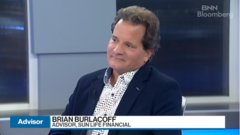Oct 4, 2016
Bruce Murray and David Newman's Top Picks: October 4, 2016
BNN Bloomberg
Bruce Murray, CEO and Chief Investment Officer at The Murray Wealth Group
and David Newman, Head of Research at The Murray Wealth Group
Focus: North American equities
_______________________________________________________________
Market Outlook
The Quarter That Was
U.S. stocks wrapped up their best quarter of the year, as the financial stocks finally jumped into the fray and technology stocks rallied. The markets like the prospect for a continued recovery as we head into year end. The S&P 500 advanced 3.3 per cent, while the S&P/TSX, aided by a recovery in the energy markets, was up approximately 4.7 per cent. The TSX strengthened on the back of a stabilization in oil prices, further aided by a recovery from the Alberta wildfires in May. That said, U.S. shale oil plays will be called back into action well before the Canadian oil sands, as they are much lower in cost.
TMWG Global Equity Growth Fund: Look South of the Border
We boldly believe the current bull market will continue into the latter part of this decade as stock valuations increase. Interest rates will remain relatively low for some time and the process of increasing them will be drawn out. When interest rates are below average, history shows rising rates actually support higher stock valuations. We believe inflation will remain in check, which will slow down the U.S. Federal Reserve Board’s need for rate increases.
In a global context, U.S. equities are best positioned to grow due to the heavy weighting of highly profitable health care, technology and social media companies combined with the strengthening U.S. economy. Analyst forecasts of earnings appear low for 2017, in our view, and equities remain cheaper than all other asset categories, bar none. In the TMWG Global Equity Growth Fund, our positioning is weighted 70 per cent towards the U.S., which is the best-in-class and the most liquid market in the world.
Regardless of the outcome of the U.S. presidential election, both candidates appear poised to invest in infrastructure (similar to Canada). The new president is likely to use fiscal policy to drive growth in the economy. From 1956 to 2006, the U.S. economy grew on average 3.5 per cent per annum, but slipped to an average of 1.6 per cent over the last 10 years due to the financial crisis of 2008 and general economic sluggishness. We currently have recovered to about 2 per cent, but the impact of the slowdown in China is holding back global growth. Financials, materials and industrials should benefit the most from fiscal spending. At TMWG, we have shied away from the materials. However, we have a healthy position in the financials (which should benefit from rising rates) and are progressively looking at select industrials. We also continue to like the outlook for the U.S. consumer with recent strong job and income growth. As a result, we have a healthy holding of consumer discretionary names, bio-tech and some pharmaceutical companies (which we believe have been unduly beaten up by Clinton’s tweets) and high-quality and reasonably valued technology companies with robust balance sheets and cash flows.
Fiscal policy will push the yield curve higher, helping to drive up the U.S. dollar over the longer term. A tighter labour market is prompting increases in wages (and ultimately interest rates). We continue to believe the U.S. dollar will appreciate versus a variety of other currencies, including the Canadian dollar.
OPEC’s efforts to trim production may help the loonie temporarily, but it remains to be seen if an agreement can be struck in November that the members of the cartel will abide by. We see the U.S. dollar continuing to gain strength against the Canadian dollar for the rest of the year due to Canada’s weak fiscal position (budget deficits), combined with poor export and economic fundamentals.
TMWG Income Growth Fund
While it is a common assumption that dividend-paying stocks will suffer at the hands of potential rate increases, the damage should be minimal until the rate increases are more material. As mentioned above, when interest rates are below average, rising rates support higher valuations for stocks. We have skewed our TMWG Income Growth Fund towards financial stocks, which will benefit from interest rate increases. We also have a selection of telecoms, media, pipelines, REITs and other special situations. However, as investors become more emboldened that the rally will continue, they will move into riskier sectors as we expect some moderation in the Fund’s growth as investors rotate out of the shares of high-dividend payers. Our Global Equity Growth Fund stands to benefit.
Conclusion
While we remain bulls on the stock market, the volatility that marks the current reality may continue, with a host of risks that could rear their collective heads. These include recent concerns around Deutsche Bank’s capital position (Germany’s largest bank), the fallout from Brexit (although modest to date), the drama of a U.S. presidential election and the threat of Chinese currency devaluation. As to the U.S. vote, if the first debate was any indication, it would appear a Clinton win could result in a rally, while a Trump win might leave the markets unsettled. We remain steadfast in a bullish position and fully invested.
Top Picks
CBS Corp (CBS.N)
CBS has highly rated content for linear and over-the-top, less threat of skinny bundle, strong ad business, growing retransmission revenues with rates being raised on cable carriers, reasonable valuation and potential for accretion if Sumner Redstone succeeds in persuading CBS to buy Viacom. Solid free cash flows and balance sheet.
Celgene (CELG.O)
Celgene could double revenues by 2020 with a robust pipeline of potential blockbuster drugs, a leadership position in oncology, inflammation and immunology, and potential drugs for Crohn’s etc. Reasonably valued biotech with exceptional growth, solid cash flows and healthy balance sheet.
Dollar Tree (DLTR.O)
We’re highlighting this name after a 20 per cent selloff, given some food deflation and Wal-Mart getting more aggressive at lower price points (competitive discounting). We believe it is overdone and should benefit from new store openings and synergies related to its Family Dollar acquisition (expect $300 million in synergies). Generating strong free cash flows.
| Disclosure | Personal | Family | Portfolio/Fund |
|---|---|---|---|
| CBS | Y | Y | Y |
| CELG | Y | Y | Y |
| DLTR | Y | Y | Y |
Past Picks: July 13, 2016
Facebook (FB.O)
- Then: $116.78
- Now: $128.19
- Return: +9.77%
- TR: +9.77%
Linamar (LNR.TO)
- Then: $50.39
- Now: $55.02
- Return: +9.19%
- TR: +9.39%
Royal Caribbean Cruises (RCL.N)
- Then: $72.58
- Now: $75.22
- Return: +3.64%
- TR: +4.31%
Total Return Average: +7.82%
| Disclosure | Personal | Family | Portfolio/Fund |
|---|---|---|---|
| FB | Y | Y | Y |
| LNR | Y | Y | Y |
| RCL | Y | Y | Y |
Fund Profile: MWG Income Growth Fund
Performance as of September 30, 2016:
- 1 month: Fund 0.55%, Index* 0.97%
- 1 year: Fund 24.51%, Index* 13.98%
- 3 year: Fund N/A, Index* N/A
* Index: 70% S&P/TSX, 20% S&P 500
* Returns Net Fees & Dividends
Top Holdings and Weightings
- Bank of Nova Scotia – 6.44%
- Toronto-Dominion Bank – 5.28%
- BP PLC – 5.08%
- Chorus Aviation Inc – 5.05%
- General Motors Co – 4.92%
Website: www.tmwg.ca











